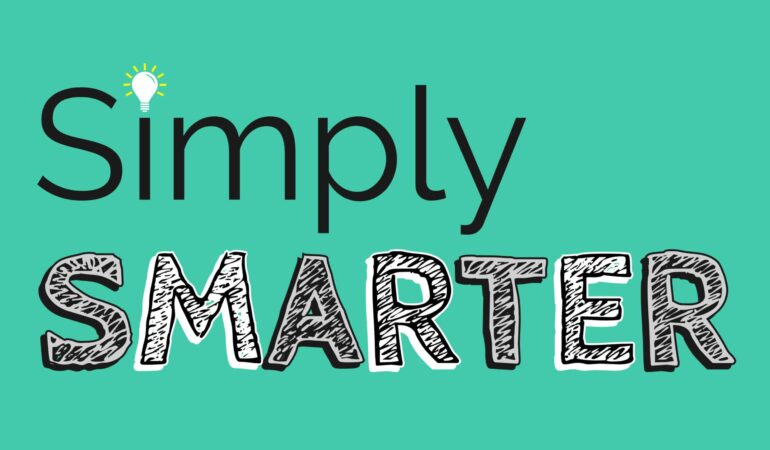Partnership with Team Cura
Partnership with Team CuraSM
Get Smarter Prep is excited to announce a new partnership with Overland Park-based, Team CuraSM. Team CuraSM is a digital education provider specializing in personal brand development for high school athletes that show potential to play at the next level.
As a member of their Skills Beyond DrillsSM Training Program, your athlete receives a series of short videos and guides. Each interactive video offers detailed steps to help your athlete gain confidence in the areas such as social media smarts, professionalism, time management, personal brand development, leadership, and more.
Each athlete will receive a series of videos, guides, E-books and activities, giving them a variety of ways to learn. Every resource offers detailed steps to help you student gain confidence in developing their personal brand.
Their team makes it easy for busy students to have access to the Skills Beyond DrillsSM training program by providing availability on smart phones, tablets and computers.
Team Cura’s goal is to help every student-athlete build their personal brand while effectively being able to communicate to their teammates, parents, teachers, and coaches throughout their high school career and onto college or beyond.
To learn more about Team CuraSM, visit their website.
ACT, SAT, or Both? Deciding which Path is Best
This debate may be familiar to many of you. ACT? SAT? Both? Some students and families enter junior year with a perfectly clear answer to those questions, but the reasons behind those decisions may be less clear. Do any of these sound familiar?
He’ll take the ACT, of course. He wants to attend a school in the Midwest.
We’re an SAT family. Her older brother scored much better on the SAT.
Of course I want to prepare for both exams!
The ACT and SAT originated in different places, for different purposes, and developed different reputations over the years. Despite the many changes to each test, some of those perceptions persist.
The SAT, originally developed by the College Board for use in admissions to elite, northeastern schools, remains more popular on the coasts than in the Midwest. The ACT came later, designed to provide an admissions test for regional and public universities that didn’t use the SAT; it is still more popular in the Midwest than the SAT.
Although these regional patterns persist regarding which test students tend to take, the initial reason for those patterns – which test your college of choice might accept – no longer holds. The final school to accept the ACT finally did so in 2007, meaning that the choice of which test to take is really up to the individual student.
Until the roll-out of the Redesigned SAT in March of this year, our goal as tutors was to encourage each student to take both a practice ACT and a practice SAT before deciding which test to prepare for. There were substantial differences in the structure, with the ACT favoring fewer, longer sections and the SAT preferring more, shorter ones. The ACT had the dreaded Science section to contend with, while the SAT tested those also-dreaded vocabulary words. Many students would score about the same on each test, and choose based on their preference, while some would perform significantly better on one than the other.
The discussion of which test to choose has been complicated somewhat since the SAT redesign. The new SAT features fewer, longer sections, just like the ACT. It has done away with the vocabulary sections. And while the SAT hasn’t added a Science section, the charts and graphs that permeate each part of the test will look somewhat familiar to those who have spent time with the ACT.
There are still differences, though, between the ACT and the SAT, that one should consider when deciding between the two exams, and they don’t have anything to do with the geographical distribution of your college list.
First, how strong are you at math? On the SAT, math counts for half of your score, while on the ACT math makes up only ¼. That’s a significant difference. Consider, also, how well you’ll fare without a calculator, as the SAT has a section that must be completed without one.
How much do you want to improve your score? Because of the changes to the SAT, there is much less practice material available than for the ACT, which means fewer opportunities to practice and improve your score. If you’re looking for a significant boost, you might lean towards the ACT.
How much do you struggle with timing? The timing on the ACT is more difficult for some students. The SAT provides more time per question, which might be an asset. Taking a practice version of each will help you to know if that is the case for you.
A final consideration is that the SAT, during and since the redesign, has been a bit unstable. There have been data breaches, score delays, and debates over how the new scores stack up to the old ones.
If you know you’ll be taking an ACT through school, or (for those who haven’t already taken it) you plan to prepare for the PSAT, those factors might influence your choice as well. The goal is to prepare for only one exam. The ACT (or SAT) is only one part of your college applications, and your college applications are only one part of your life. Preparing for both tests – or choosing the wrong one – is a recipe for doing more work than necessary and taking time away from all of those other activities and classes that make up your high school career.
By Audrey Hazzard, Premier-Level Tutor
The Hazards of Anecdotal Advice
Preparing for the ACT or SAT can seem daunting. Often, people instinctively turn to friends or online articles for advice. While some guidance from these sources is helpful, it’s important to examine the limitations of students who could be referencing an outdated version of the test, whose only knowledge of the exam comes from taking it, and who may have needs that are dramatically different from your own.
What Have You Heard?
Our students commonly pass along what they’ve heard from their peers, and while some of it is good, solid information, a lot of it rings completely or, at least, partially false. For instance, some students will swear that “C” is correct the majority of the time when in reality, the answers on the test are evenly distributed throughout the exam – so C is no more likely than any of the other options.
Another common tip is to take the test on a particular date – take June, for example – because it’s easier than the others. There are several issues with this. Maybe June felt easier for one particular student, but, as everyone’s strengths are different, that didn’t necessarily hold true for others. If the June test in 2022 truly was easier for most students, that doesn’t mean that the 2023 test will follow suit. Most importantly, the curve on the ACT renders any differences in difficulty irrelevant. If the June test was less difficult, then the curve would just be harsher.
Additionally, we recently worked with a student who scored higher on the ACT, but was told by a friend at Harvard that she should take the SAT solely because she had already taken the ACT previously. This was amidst the new changes (which made the SAT unstable and a bad choice for the majority of students). Combine that with the fact that every college will accept either exam, and her friend’s direction amounts to some pretty rotten advice. In the end, the student remained focused on her stronger test and exceeded even her expectations.
Looking to current college students for help – particularly those who attend prestigious schools – seems intuitive on the surface. However, students who attend top schools are often scoring in the top 99th percentile of college bound students nationwide, and therefore do not reflect the reality for the majority of other students. Also, these students have a very limited experience. Scoring well on a test does not make you an expert – especially as the tests continue to evolve.
SAT
The newly revised SAT gives a perfect example of this. In this article, Business Insider presents the perspective of a “Harvard grad with a perfect score on the SAT.” In the article, Chris Ryan (the aforementioned Harvard alum) offers last minute tips to scoring well on the SAT. There’s a major problem with taking his advice: the test that Ryan took years ago hardly resembles the current SAT.
In another article, titled “College Students Share Their Best SAT, ACT Test Strategies,” students from Washington University in St. Louis and Harvard University are consulted. Their advice includes some valuable tidbits, such as beginning to study well before the test, striving to learn new strategies, realizing that these tests are “not the be-all, end-all,” and the importance of skipping questions that are sucking up all of your time.
Alternatively, some of the advice falls flat and illustrates a lack of expertise. When counseling students on time management, the WashU student claims that you should skip passages on the ACT Science section that include charts if you struggle with reading them. This information is not only inaccurate, it’s potentially quite harmful. Of the six ACT Science passages, five of them will reliably have charts, while only one may not. If a student were to try to follow this advice on test day, they’d end up frantic and confused – as they’d potentially be trying to skip over all of the passages.
Overall, it’s vital to use discretion when following advice about college entrance exams that comes from friends or articles. While some of it may be valid, keep the source in mind. Just because your uncle recently had his home remodeled, that doesn’t mean you’d want him creating blueprints for yours. Instead, you’d turn to the experts.




